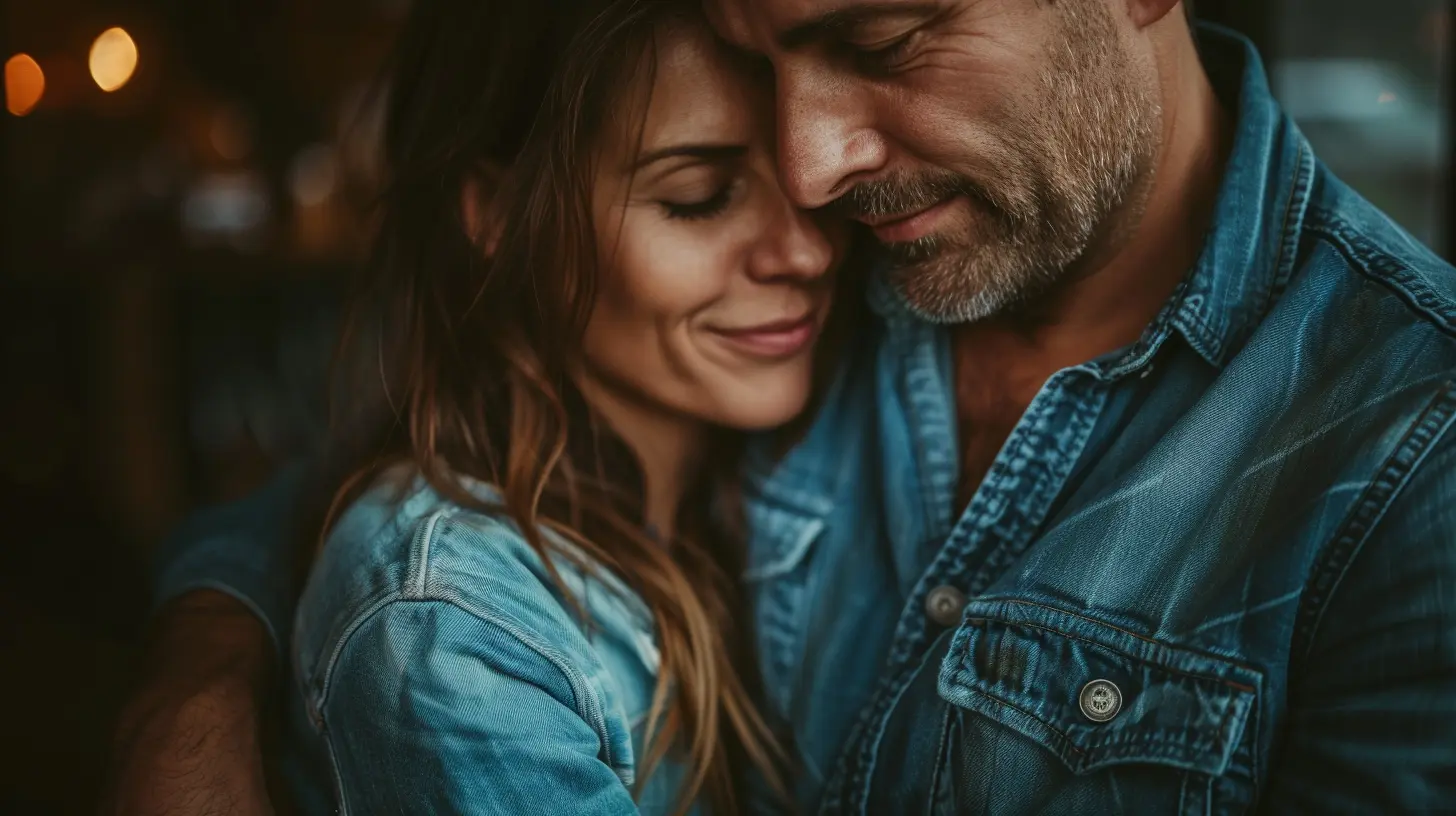How Grief Affects Relationships: Navigating Loss Together
2 November 2025
Grief is like an uninvited houseguest—it shows up when you least expect it, overstays its welcome, and leaves a mess in its wake. Whether it’s the loss of a loved one, a pet, or even a life-changing event, grief has a sneaky way of wiggling into every aspect of life, including your relationships.
If you're going through loss with a partner, family member, or friend, you might find yourself wondering, “Why are we fighting over who left the toothpaste cap off when we should be comforting each other?” Yeah, grief does that. But don’t worry, you’re not alone. Let’s unpack how grief affects relationships and how you can navigate this emotional rollercoaster together. 
Grief Changes People—And That’s Okay
Grief isn't a one-size-fits-all experience. Some people turn into emotional puddles, while others slap on a brave face like they're auditioning for an action movie. Then you have the ones who cope by cleaning the entire house at 2 AM. (We see you, Linda.)The thing is, everyone processes grief differently. And when you're in a relationship—romantic or otherwise—it can feel like you're speaking two different languages.
- One person might need space while the other needs constant reassurance.
- One might cry at the drop of a hat while the other avoids emotions like they’re dodging spoilers for their favorite show.
- One may want to talk about it, while the other would rather pretend everything’s peachy.
The key? Accept that grief changes people, and that’s completely normal. 
The Communication Struggle Is Real
You’d think grief would bring people closer together, right? Cue reality check—it often creates distance. Why? Because emotions are running high, and people aren't always great at expressing them.Instead of saying, “I miss them so much and I’m scared of feeling this way forever,” it might come out as, “Why didn’t you take the trash out?”
Sound familiar? Grief has a way of turning minor issues into emotional landmines. Small annoyances suddenly feel like personal attacks. One offhand comment can ignite World War III.
So, how do you fix it?
1. Talk, even when it’s awkward – It’s okay if your words aren’t perfect. Just say something. “I’m struggling today” is better than bottling it up.2. Listen, even when it’s hard – Sometimes, your partner doesn’t need solutions; they just need to know they’re heard.
3. Be patient – Miscommunication is bound to happen. Give each other some grace.

Grief and Intimacy: A Complicated Relationship
Ah, intimacy—the glue that holds relationships together. Unfortunately, grief has a way of making that glue feel like it’s lost its stickiness.For some, grief decreases physical affection. The thought of being touched might feel overwhelming, or they might just not have the energy for it. For others, physical closeness becomes even more important as a source of comfort.
Neither reaction is wrong.
If grief is affecting your intimacy:
- Be honest – If you’re feeling distant, say so. If you need extra affection, ask for it.
- Don’t take it personally – Your partner isn’t rejecting you; they’re just processing emotions in their own way.
- Find other ways to connect – Holding hands, cuddling, or even just sitting in silence together can be powerful. 
When Grief Makes You Irritable (a.k.a. The Short-Fuse Syndrome)
Ever snapped at your best friend for chewing too loudly? Or felt personally offended that your partner finished the last slice of pizza? Welcome to Short-Fuse Syndrome—grief’s way of making you react to minor inconveniences like they’re life-altering disasters.Grief comes with an emotional overload, and sometimes, that extra energy leaks out as irritation, frustration, or even anger. The problem? The people closest to you usually take the hit.
How to avoid unnecessary blow-ups:
- Recognize when grief is talking – Before you lash out, ask yourself: “Am I really this mad, or is my grief making me extra sensitive?”- Take a breather – If everything and everyone is getting on your nerves, step away for a while. Go for a walk, listen to music, or scream into a pillow—whatever works.
- Apologize when needed – Snapped at someone? Own it. A simple “I’m sorry, I’m just having a tough day” goes a long way.
Grieving Together Without Drifting Apart
Grief can feel isolating, even when you're surrounded by people. Sometimes, you and your loved one may feel like you’re grieving side by side but not necessarily together.How do you bridge that gap?
- Create rituals together – Light a candle, visit a meaningful place, or simply share memories. Rituals help keep a connection with your loved one while strengthening the bond between you.
- Support each other’s grieving styles – Maybe one of you needs to cry it out while the other copes with humor (yes, grief can come with terrible, ill-timed jokes). Respect those differences.
- Check in regularly – A simple “How are you feeling today?” can open the door to connection.
When to Seek Professional Help
Sometimes, grief becomes too heavy to carry alone. If emotions are spiraling, or if grief is causing serious strain on your relationships, there’s no shame in seeking help.Signs that therapy might be a good idea:
- Constant fights and misunderstandings
- Persistent feelings of anger or resentment
- Withdrawal from loved ones
- Difficulty functioning in daily life
A grief counselor or therapist can provide tools to navigate this difficult time without letting grief drive a wedge between you and your relationships.
Final Thoughts
Grief is messy, unpredictable, and frustrating—but it doesn’t have to tear your relationships apart. With patience, communication, and a little bit of grace (for yourself and each other), you can navigate loss together.At the end of the day, grief is love in another form. And even though it hurts, that love doesn’t have to disappear—it just shifts into something new.
So be kind. To yourself, to each other, and to the memory of those you miss.
all images in this post were generated using AI tools
Category:
Grief And LossAuthor:

Eliana Burton
Discussion
rate this article
1 comments
Ziva Yates
Grief is like a mischievous raccoon that rummages through our emotional trash! Together, let’s untangle the mess and find the hidden treasures of connection amidst the chaos of loss!
November 4, 2025 at 5:12 AM

Eliana Burton
What a creative analogy! Grief can indeed feel overwhelming, but finding connection and meaning together can turn the chaos into shared strength.


